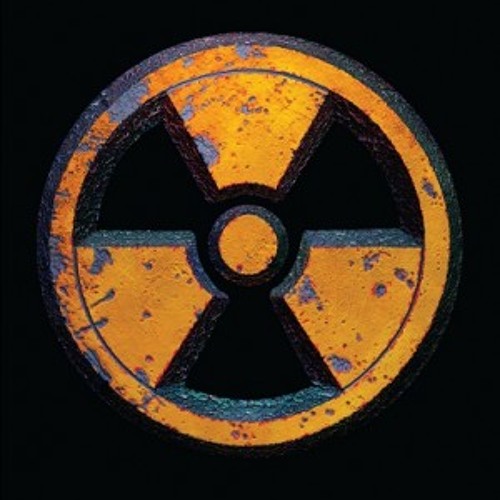Duke Nukem Sound Pack Wav Wtf

Sound List This is a complete listing of the sound information in Duke Nukem 3D: Atomic Edition. My sources were the sound and CON files included with the game. The 'multiple block' sampling rate information came from an old (but excellent) list by Shane King. There were a few discrepancies between his multi listing and mine (probably due to his list being from v1.3d). Download aiv editor stronghold crusader 2. The majority of the custom sound information was obtained through testing, although some of the more basic points are listed directly in the CON files.
Custom Sound Effects and Music • The game will only accept sound effect files that are in VOC or WAV format, and music files that are in MID format. EDuke32 also supports the OGG (Ogg Vorbis) format for sound effects and music. • You can either change the filenames listed in USER.CON to match your custom files, or you can rename your custom files to match the filenames listed in USER.CON.
This is the ultimate Duke Nukem soundboard, with new stuff added as I find it. All of the classic one liners with a few extras! There have been new tracks added. Do Duke Nukem 3D soundfx sound a bit grainier or bass-y than Doom's sounds? What frequency are they played at? Pardon my elementary knowledge of audio, but is it possible to push Doom sounds through the same filters that Duke Nukem 3D's sounds go through to kinda engineer them to sound similar?
• The default music file associated with user maps is DETHTOLL.MID. EDuke32 can alternatively use DETHTOLL.OGG, and is also designed to load a music file with the same name as a loaded user map. The only exception is if the user map has the same name as an official map in the E#L# format, in which case (unlike the original game) EDuke32 considers it to be an official map and plays the music file defined for that map in USER.CON. • Place the custom files in the game's root directory. Files within the game's root directory have precedence over files of the same name within DUKE3D.GRP (and case-sensitivity does not apply, although this may differ in alternative operating systems). It also seems that OGG files are predominant over MID files of the same name if both are present in the game's root directory. • The maximum number of sound effect definitions allowed in DEFS.CON is 450 (0-449) in the original game, and 2560 (0-2559) in EDuke32.
• There are size, bit depth, and sampling rate limits for sound file compatibility, detailed below: Duke3D MID - Max Filesize: 72,000 bytes as per USER.CON (does not use cache). VOC/ WAV - Max Filesize: undefined (limited to cache size, which is shared by all loaded sound effects/tiles*).
Compatible With: VOC 16-bit signed Mono VOC 8-bit unsigned Mono WAV 16-bit signed PCM Mono WAV 8-bit unsigned PCM Mono EDuke32 MID - Max Filesize: undefined (does not use cache; virtually unlimited). OGG (music) - Max Filesize: undefined (does not use cache; virtually unlimited). OGG (sound effect)/ VOC/ WAV - Max Filesize: undefined (limited to cache size, which is shared by all loaded sound effects/tiles*). Compatible With: VOC 16-bit signed Mono/Stereo VOC 8-bit unsigned Mono/Stereo WAV 16-bit signed PCM Mono/Stereo WAV 8-bit unsigned PCM Mono/Stereo OGG (N/A, lossy format) Mono/Stereo Sampling Rate: VOC/ WAV/ OGG files are able to play anything your sound card can handle up to a maximum of 65,535 Hz (a 16-bit value). Going beyond this value usually causes the sounds/music to become horrendously pitch-shifted or not play at all.
Presumably, this is caused by a memory buffer overflow error forcing the 16-bit sample rate value to 'eat' into a nearby pitch-range value or somesuch, scrambling it into a nonsense value which in turn causes this behaviour. Using standard sampling rates such as those used in the original sound files, or 11,025 Hz, 22,050 Hz, 44,100 Hz, and so forth is encouraged.
Important Note 1: If using WAV/ OGG sound effect files, you must replace the instances of '.VOC' in USER.CON with the correct file extension for those files (this step is easy to forget). Also note that if a WAV/ OGG sound effect file is not found in the game's root directory, the game will search for it in DUKE3D.GRP and will not be able to find it. The game will not know on its own to revert to the default VOC file, so no sound will play at all. Important Note 2: If you are converting from another audio source to a WAV file, make sure the audio program doing the conversion is not writing any form of tag information to the WAV file. A WAV file with tag metadata is not compatible and will refuse to play in the game.
If the WAV file still refuses to play, and you are absolutely certain it contains no tag metadata, try re-encoding it with a different audio program. Important Note 3: The original game will notify the player when a defined sound file does not exist, by displaying the message 'sound [#] not found.' Upon attempting to play a nonexistent sound file. This feature has been disabled in-game in EDuke32, and is instead reported in the eduke32.log file. EDuke32 will also report sounds which are not properly defined in the code if the game attempts to play them. * EDuke32 is capable of handling much larger sound files than the original game. This is likely due to its larger cache size, which is 24.0 MB by default (and customizable via the program parameters).